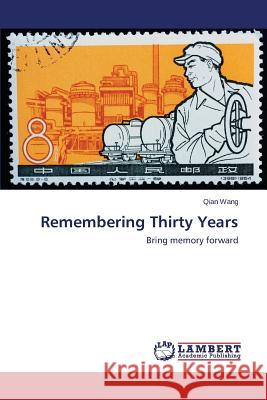Remembering Thirty Years » książka
Remembering Thirty Years
ISBN-13: 9783659609626 / Angielski / Miękka / 2014 / 136 str.
This book uses a life history qualitative methodology to explore the changes in values of Chinese who belonged to a special group-the glorious workers of the 1970s who were once thought of as the proud owners of the country. However, in late 1980s, after the Opening and Reforming Policy in China, these workers were laid off. This book traces the lives of three participants who attempted to adapt to the drastic social and economic changes that took place in China over a 30-year period, from Mao's era, to Deng's era, to present day China. This book has a high value to contribute to the exploration into combination of photo elicitation with life history as a research methodology. This book has highlighted a complex pattern of interactions between the life history and changes in values of the participants as laid-off workers who experienced an abrupt and highly contrasting social status in a changing China. Thus, this book addresses the influences on a lifetime of living in rapidly changing historical eras impacted by the contrasting values of collectivism and individualism, traditional and modern (Western) values, and situates its findings within the recent work in curriculum studies.
This book uses a life history qualitative methodology to explore the changes in values of Chinese who belonged to a special group-the glorious workers of the 1970s who were once thought of as the proud owners of the country. However, in late 1980s, after the Opening and Reforming Policy in China, these workers were laid off. This book traces the lives of three participants who attempted to adapt to the drastic social and economic changes that took place in China over a 30-year period, from Maos era, to Dengs era, to present day China. This book has a high value to contribute to the exploration into combination of photo elicitation with life history as a research methodology. This book has highlighted a complex pattern of interactions between the life history and changes in values of the participants as laid-off workers who experienced an abrupt and highly contrasting social status in a changing China. Thus, this book addresses the influences on a lifetime of living in rapidly changing historical eras impacted by the contrasting values of collectivism and individualism, traditional and modern (Western) values, and situates its findings within the recent work in curriculum studies.











